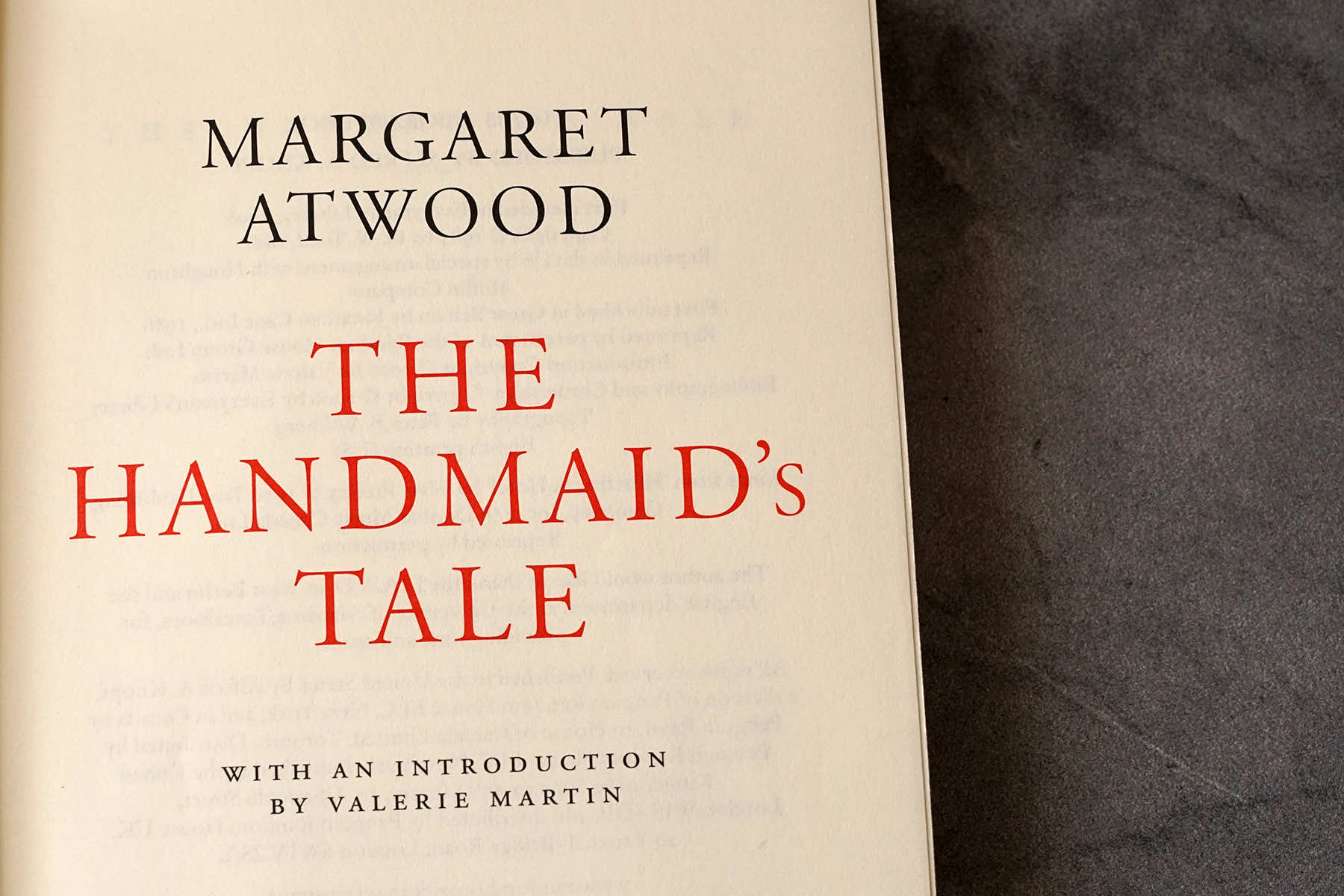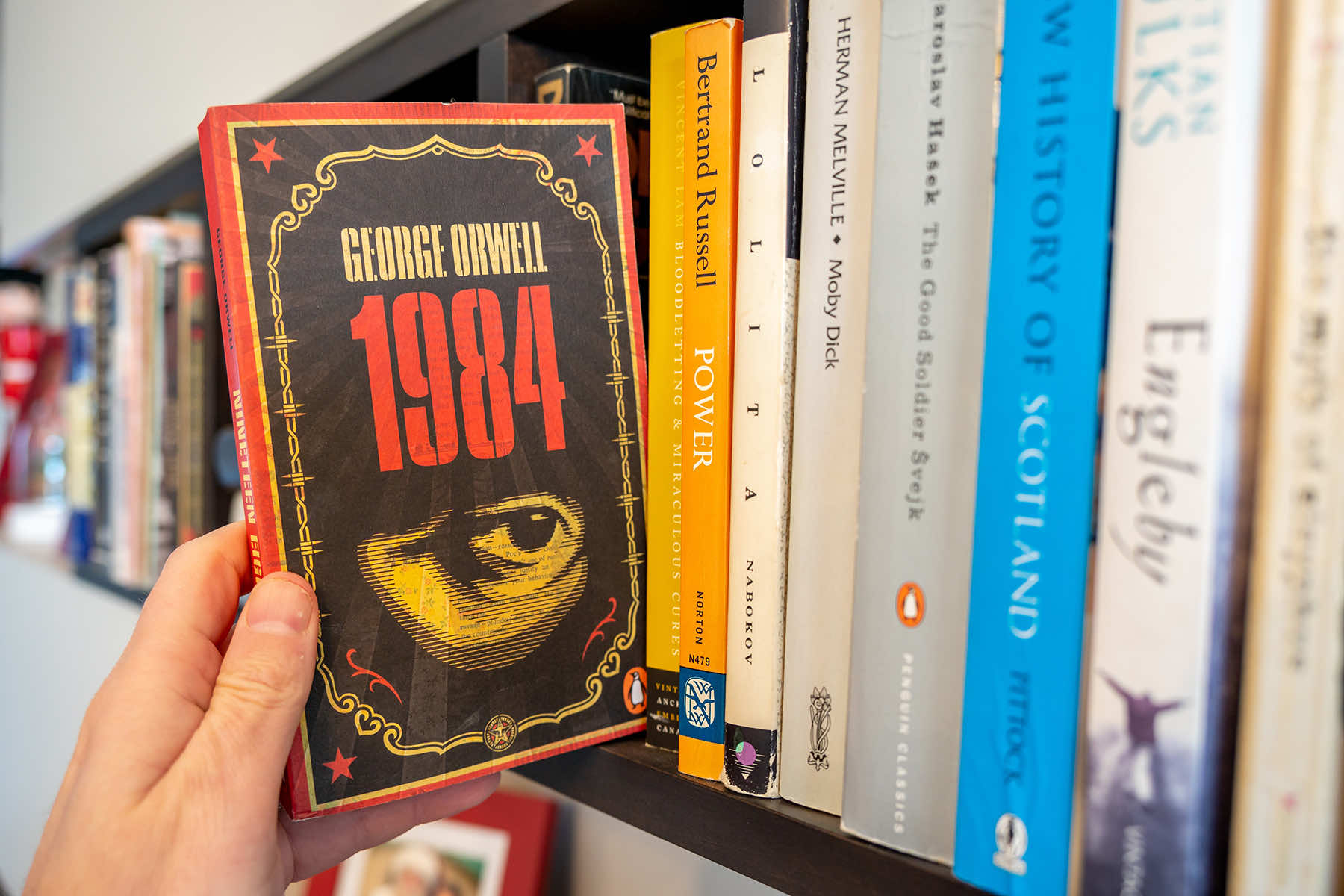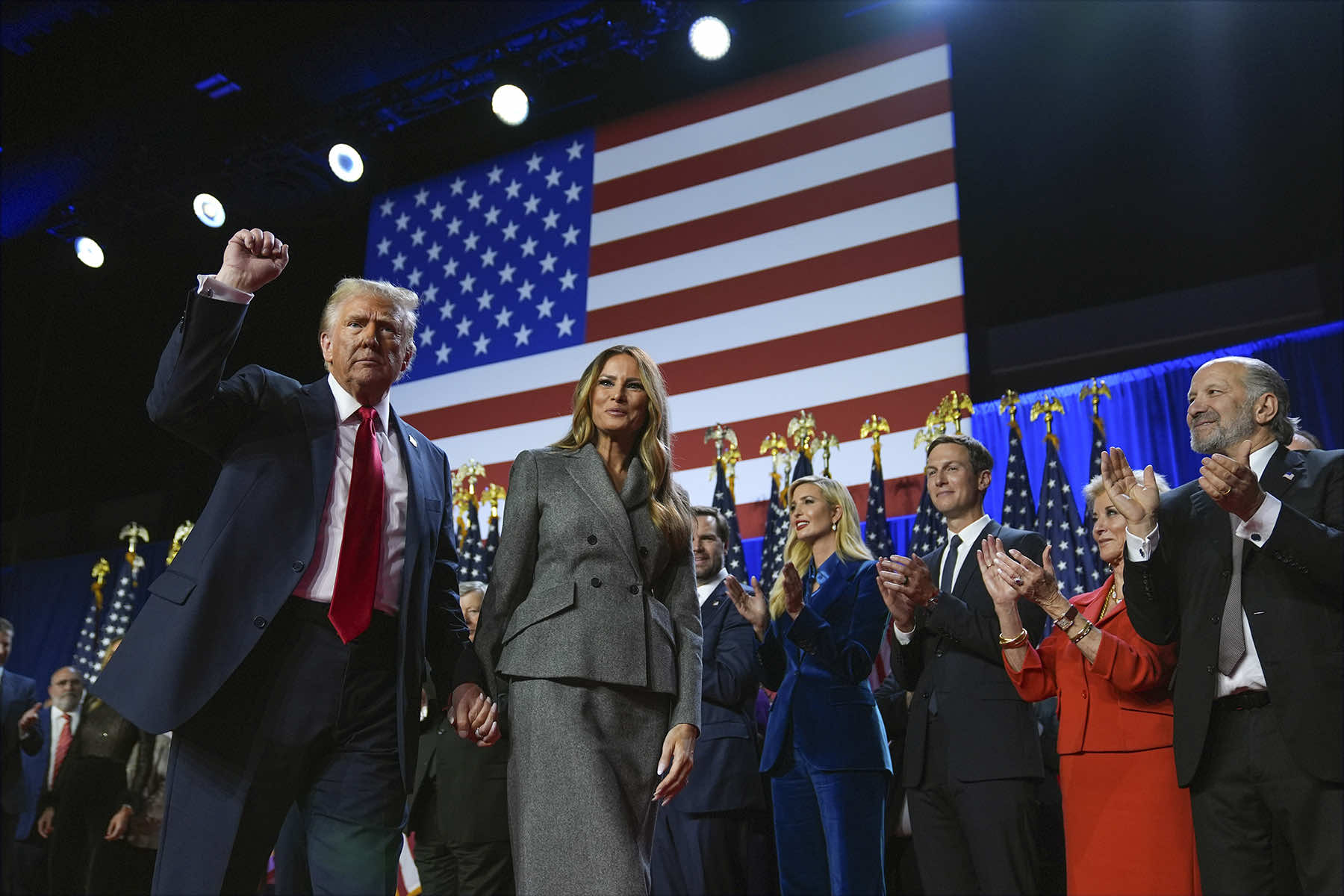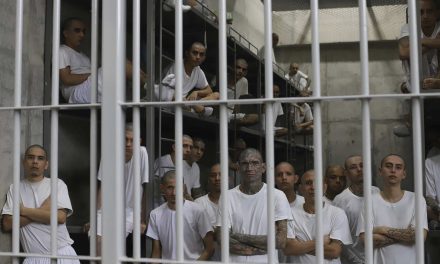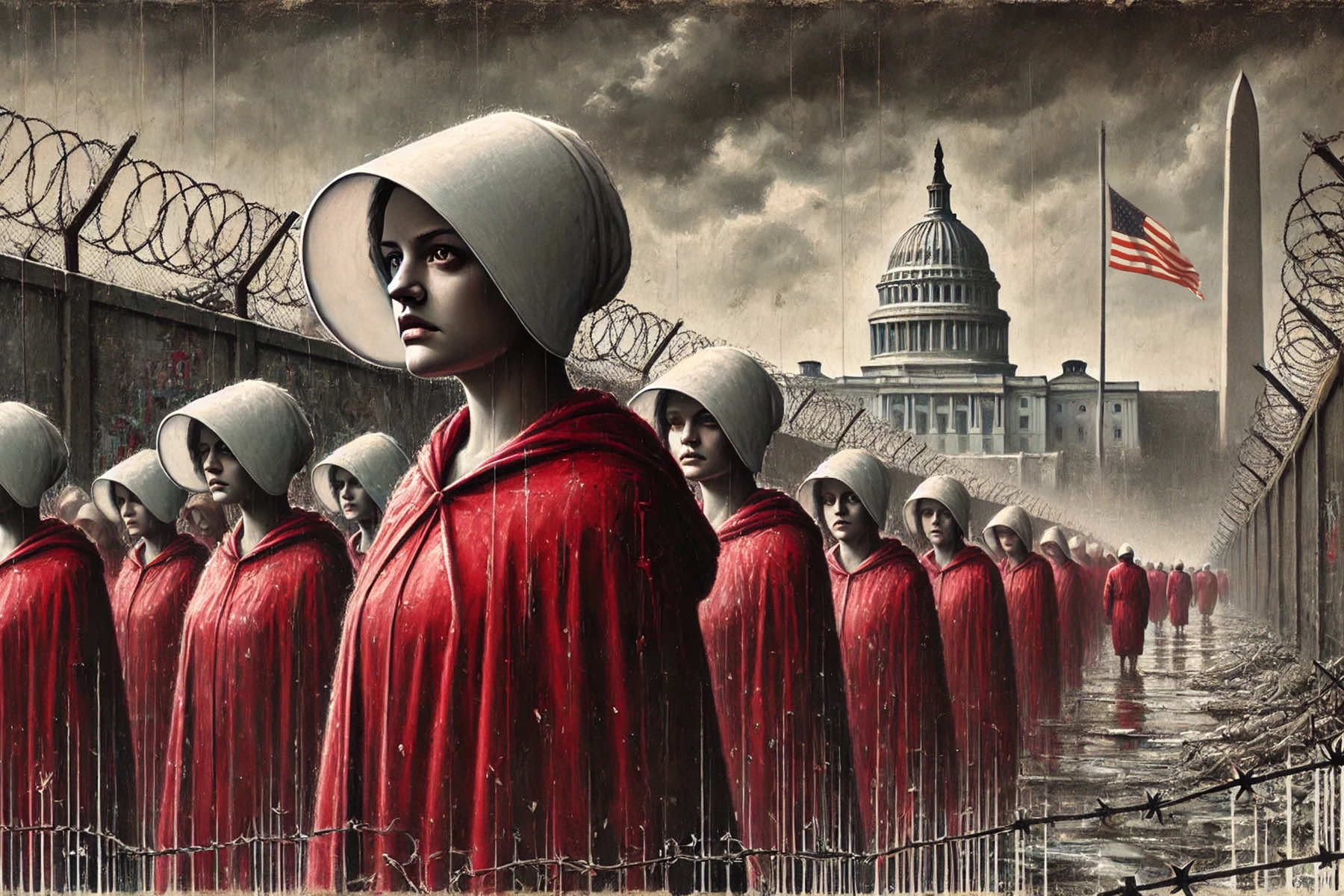
“The Handmaid’s Tale” is selling again. Since convicted felon Donald Trump clinched his return to the White House, Margaret Atwood’s dystopian classic about a country in which women are brutally repressed has been high on the Amazon.com bestseller list.
In Atwood’s chilling story, readers are thrust into the oppressive world of Gilead, a totalitarian regime that has supplanted the United States government, enforcing a brutal hierarchy where women are stripped of their rights and autonomy. The story centers on Offred, a Handmaid whose sole purpose is to bear children for the ruling elite amidst widespread infertility.
Through Offred’s harrowing experiences, the narrative exposes the stark realities of life under a regime that categorizes women as Wives, Marthas, or Aunts, each role designed to uphold the oppressive social order. As Offred navigates this dehumanizing landscape, her clandestine affair with the Commander complicates her struggle for survival and highlights the moral complexities of power and complicity.
“The Handmaid’s Tale” was popular throughout Trump’s first term, along with such dark futuristic narratives as George Orwell’s “1984” and Ray Bradbury’s “Fahrenheit 451,” both of which were in the Amazon top 40 after the election.
George Orwell’s “1984” presents a haunting vision of a totalitarian future where the state, embodied by the Party and its leader Big Brother, exercises complete control over every aspect of life. The narrative follows Winston Smith, a low-ranking Party member who works at the Ministry of Truth, where he alters historical records to fit the Party’s ever-changing narrative.
As Winston grapples with the oppressive regime that employs constant surveillance, propaganda, and thought control, he secretly yearns for rebellion and truth. His illicit love affair with Julia serves as an act of defiance against the dehumanizing forces of the Party. However, their brief respite from conformity is shattered when they are discovered and subjected to brutal re-education tactics.
Ray Bradbury’s “Fahrenheit 451” is also a powerful critique of censorship and the dangers of a society that prioritizes conformity over individuality. Set in a dystopian future where books are outlawed and “firemen” are tasked with burning any that are found, the narrative follows Guy Montag, a fireman who becomes disillusioned with his society’s anti-intellectualism.
Initially a staunch supporter of the regime, Montag’s encounters with his free-spirited neighbor Clarisse spark a crisis of conscience, leading him to question the meaning of happiness and the value of knowledge. As he secretly begins to collect and read books, Montag’s transformation sets him on a collision course with the oppressive forces of the state.
The themes of Atwood, Orwell, and Bradbury converge on chilling themes that serve as a stark warning against the dangers of totalitarianism and the erosion of individual freedoms. Each author depicts a world where oppressive regimes wield unchecked power, employing censorship and the manipulation of truth to maintain control over the populace.
Characters grapple with the loss of their identities as they navigate societies that demand conformity and suppress dissent. Through their struggles for autonomy and resistance, these works illuminate the perils of apathy and the crucial need for vigilance in safeguarding democratic values. Ultimately, the authors challenge readers to reflect on the fragility of freedom and the imperative to uphold individuality and critical thought in the face of rising authoritarianism.
Another best-seller from Trump’s previous time in office, Timothy Snyder’s “On Tyranny: Twenty Lessons from the Twentieth Century,” was in the top 10.
Pro-Trump books also were selling well. Former first lady Melania Trump’s memoir, “Melania,” was No. 1 on the Amazon list, and Vice President-elect JD Vance’s “Hillbilly Elegy” was in the top 10. Donald Trump’s photo book “Save America” was in the top 30.
“The Turner Diaries” gained notoriety among extremist groups, particularly after the election of Trump in 2016, as it was embraced by White nationalists who saw parallels between the book’s themes and their own racist ideologies. The book has been criticized for its promotion of violence and it serves as a stark reminder of the dangerous ideas that can emerge in times of political upheaval.
At Barnes & Noble, “Fiction and non-fiction books that feature fascism, feminism, dystopian worlds and both right-and-left leaning politics rocketed up our sales charts with the election results,” according to Shannon DeVito, the chain’s director of books. She cited “On Tyranny” and Bob Woodward’s latest, “War,” which covers the responses of Trump and President Joe Biden to the conflicts in Ukraine and the Middle East. DeVito also cited “a massive bump in dystopian fiction.

